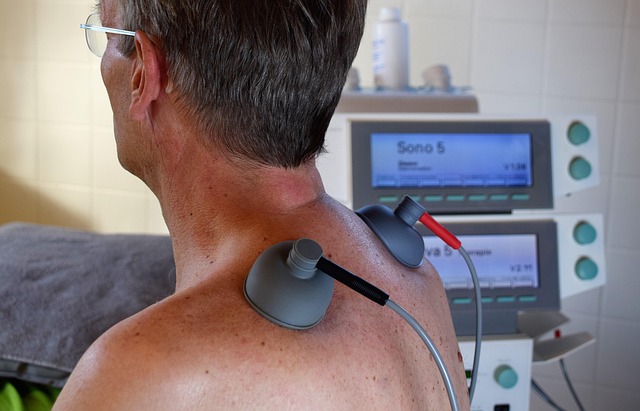Commercial insurance for dental offices is essential to protect against risks unique to healthcare, including malpractice, property damage, and business interruptions. Key components include general liability, professional liability, property coverage, and business income protection. Customizing policies based on location, service types, and risk assessment ensures adequate coverage while managing costs and maintaining financial stability for successful dental practices.
In the competitive landscape of dentistry, comprehensive commercial insurance isn’t a luxury—it’s a necessity. This article guides dentists and dental practices through the intricacies of commercial insurance, offering insights into understanding and maximizing coverage. From benefits that enhance patient care to tailored policies suited to diverse practices, we explore how the right insurance can safeguard your business and patients. Learn about claims processes, shopping for the best fit, and risk assessment strategies for a secure dental practice future.
- Understanding Commercial Insurance for Dental Practices
- Benefits of Comprehensive Coverage for Dentists
- Types of Dental Office Insurance Policies
- Assessing Risk and Customizing Your Policy
- The Claims Process: What to Expect
- Shopping for the Best Dental Commercial Insurance
Understanding Commercial Insurance for Dental Practices

Commercial insurance for dental offices is a crucial aspect of managing a successful practice. It provides financial protection against potential risks and liabilities that come with running a business in the healthcare sector. By understanding the intricacies of commercial insurance, dentists can ensure they have adequate coverage to safeguard their assets, employees, and patients.
This type of insurance offers comprehensive solutions tailored to meet the unique needs of dental offices. It typically includes general liability coverage to protect against claims related to injuries or property damage on the premises. Additionally, it may include professional liability insurance, also known as malpractice insurance, which shields dentists from financial losses due to negligence or errors in treatment. Commercial insurance for dental offices can also cover business interruption, providing financial stability during unforeseen events that disrupt operations.
Benefits of Comprehensive Coverage for Dentists

Comprehensive commercial coverage for dentists offers numerous advantages that can significantly impact their practice’s success and patient satisfaction. By securing robust commercial insurance for dental offices, practitioners gain financial protection against potential risks and liabilities unique to the dental field. This includes coverage for professional malpractice claims, which can shield dentists from substantial legal fees and damages in the event of alleged negligence.
Moreover, comprehensive commercial plans often include benefits like equipment replacement, property damage protection, and income continuation during periods of disruption caused by unforeseen events such as natural disasters or pandemics. Such coverage enables dental offices to maintain continuity of care for their patients and preserve operational stability. Additionally, with access to a broader range of services, dentists can better address a wider array of patient needs, enhancing the overall quality and accessibility of dental care.
Types of Dental Office Insurance Policies

Dental practices, like any other business, require comprehensive protection to mitigate risks and ensure financial stability. Commercial insurance for dental offices is designed to cover a wide range of potential liabilities and risks specific to this industry. Generally, these policies fall into several key categories: general liability insurance, professional liability (or malpractice) insurance, property insurance, and business income/interruption coverage.
General liability protects against claims of bodily injury or property damage occurring on the dental office premises, while professional liability safeguards dentists from malpractice suits related to treatment outcomes. Property insurance secures the physical assets of the practice, including equipment and inventory, in case of damage or theft. Business income/interruption insurance provides financial safeguard during unforeseen events that disrupt normal operations, ensuring the practice can recover and continue serving patients without significant loss.
Assessing Risk and Customizing Your Policy

When it comes to commercial insurance for dental offices, assessing risk is a crucial step in crafting an effective policy. Every dental practice has unique needs and potential hazards. For example, consider factors such as location—a busy urban area may have higher liability risks compared to a suburban setting. The types of services offered can also impact coverage requirements; specialized procedures or advanced technology may necessitate tailored coverage.
Customizing your commercial insurance policy allows you to address these specific concerns. Insurance providers offer various options, from general liability to professional liability and property coverage. By evaluating your practice’s risks and selecting the right blend of protections, you ensure that your dental office is adequately insured, providing peace of mind and safeguarding against potential financial burdens.
The Claims Process: What to Expect

When it comes to running a dental practice, understanding the claims process is crucial for smooth operations and financial stability. Commercial insurance for dental offices plays a pivotal role in mitigating risks and ensuring a seamless claims experience. Here’s what you can expect when navigating this aspect of your dental practice’s coverage.
The claims process begins with submitting a claim form to your insurance provider after rendering dental services. This typically involves detailing the procedure, associated costs, and any relevant documentation. Upon submission, the insurer assesses the claim, verifies the treatment, and compares it against the policy terms. In most cases, you’ll receive an approval or denial notification within a specific timeframe, often a few days to a week. Approved claims are processed for reimbursement, with funds typically dispersed via electronic transfer or check. Understanding your policy’s coverage limits, deductibles, and exclusions is essential to managing expectations and ensuring compliance.
Shopping for the Best Dental Commercial Insurance

When it comes to securing comprehensive protection for your dental practice, shopping for the best dental commercial insurance is a crucial step. As a dentist, you’re well-versed in patient care and treatment options but may not have extensive knowledge of navigating insurance markets. Thus, understanding different coverage options, comparing policies, and evaluating providers becomes essential.
Start by assessing your practice’s unique needs. Consider factors such as the size of your team, types of services offered, and existing patient demographics. Next, reach out to multiple insurance carriers specializing in dental commercial insurance. Request quotes and detailed policy information to ensure you’re getting the best value for your investment. Remember, the right coverage will not only protect your practice from financial risks but also contribute to its long-term success and stability.
